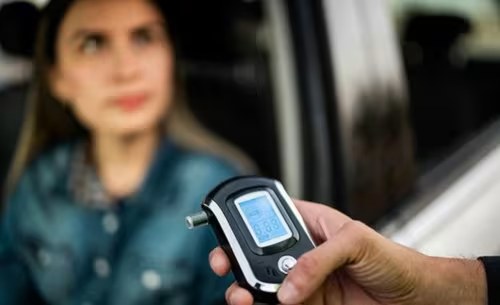Disclaimer: This guest post was written by a third party and is for informational purposes only. It does not constitute legal advice or create an attorney-client relationship with The Meehan Law Firm. For legal advice, please contact our office.
.png)
.png)
A DUI arrest is a frightening experience, especially in California where the consequences can be swift and severe. However, many individuals do not realize that police officers may not fully inform them of their rights and the critical consequences they face. Knowing these gaps can make the difference between protecting your future and suffering unnecessary penalties.
The Silence on Your Right to Remain Silent
When pulled over on suspicion of DUI, officers are not obligated to read you your Miranda rights unless you are officially under arrest and subjected to interrogation. Because they don’t have to advise you of your rights, they ask all of the questions prior to arrest, during the “investigation.” Many drivers mistakenly believe they must answer every question during the stop. In reality, you have the constitutional right to remain silent beyond providing basic identification information. Officers may ask probing questions designed to gather evidence, but you are under no obligation to incriminate yourself. I would suggest you kindly state that you are not going to be answering any further questions.
Implied Consent Law and What It Actually Means
California’s implied consent law requires drivers to submit to chemical testing (blood or breath) after a lawful DUI arrest. However, officers often do not clarify that refusing a post-arrest chemical test can lead to automatic license suspension and enhanced penalties, regardless of whether you are later convicted of DUI. Drivers may confuse field sobriety tests and preliminary breath tests at the scene with the post-arrest chemical test, which carries these severe consequences if refused. Some officers also tell the driver that they have a right to refuse the chemical test, but do not tell the driver they will get your blood with a warrant, or your refusal will cause your license to be revoked.
Field Sobriety Tests Are Voluntary
Officers frequently ask drivers to perform field sobriety tests, such as walking in a straight line or standing on one foot, but rarely explain that these tests are voluntary. There is no legal penalty in California for politely refusing field sobriety tests. Participating often provides officers with more evidence to support an arrest, even if the tests are subjective and heavily influenced by factors like nervousness, fatigue, or medical conditions. Performing field sobriety tests is providing evidence against yourself, just like answering questions, so you have the constitutional right to not perform those tests.
Preliminary Alcohol Screening (PAS) Test Confusion
During a DUI stop, officers might administer a handheld breath test known as a Preliminary Alcohol Screening (PAS) test. What they often omit is that for most drivers over 21 who are not on probation, the PAS test is optional before an arrest is made. Many individuals feel pressured into taking the test, believing it is mandatory, when in fact they could legally decline. The PAS test is considered a Field Sobriety Test, so it is voluntary.
Incomplete Disclosure About Blood Test Rights
If you are arrested for DUI, California law generally allows you the choice between a blood or breath test. However, officers sometimes fail to fully inform you that if you request a blood test, it can preserve evidence that may be beneficial to your defense. Blood samples can be retested later by an independent lab to challenge the accuracy of the state's evidence. Without knowledge of this right, many drivers automatically comply with breath tests, losing that potential advantage.
The Real Consequences of a DUI Arrest
After a DUI arrest, officers usually focus on immediate procedures like towing your vehicle or issuing a temporary license suspension order. They do not typically advise you that a DUI conviction in California can carry long-term consequences: a permanent criminal record, mandatory DUI education programs, ignition interlock device requirements, skyrocketing insurance rates, and serious employment or professional licensing repercussions.
Moreover, a DUI conviction stays on your record for ten years for priorability, future sentencing enhancement, and DMV purposes. This can drastically impact future penalties if you are arrested again within that window.
You Are Entitled to Legal Counsel
Following an arrest, officers are not obligated to remind you that you have the right to consult an attorney before answering any questions. Once you are in custody, invoking your right to an attorney immediately can protect you from unintentionally providing evidence that could be used against you. Unfortunately, many individuals unknowingly waive this vital protection.
It is important to point out, that you are not permitted to consult with an attorney prior to deciding if you will take a blood or breath test following your DUI arrest.
DMV Hearings Are Separate and Time-Sensitive
Officers typically issue a pink "Notice of Suspension" form after a DUI arrest but fail to explain that you must request a DMV hearing within 10 calendar days of your arrest to challenge your license suspension. Missing this deadline means an automatic suspension, even if your criminal charges are later dismissed. This administrative process is separate from the court proceedings and operates under different rules, making timely action crucial.
Officers Are Trained Investigators, Not Advisors
It is essential to understand that police officers are trained to gather evidence, not to protect your legal rights. Their primary goal during a DUI stop is to collect as much evidence as possible to support an arrest and prosecution. They are not required to volunteer information that could help you mount a defense or avoid self-incrimination. The report they write will likely only contain information that supports the decision to arrest the driver, and maybe not information favorable to the driver.
Misconceptions About Cooperation
Many drivers believe that cooperating fully and answering every question will improve their chances of leniency. In reality, polite but firm assertion of your rights - such as declining field sobriety tests, refusing to answer potentially incriminating questions, and requesting an attorney - often provides a stronger defense later. Officers will not warn you that cooperation rarely prevents an arrest if they already suspect DUI. The officers are paid to make arrests, so cooperating just makes the arrest easier for the officer.
Closing Thoughts: Knowledge is Your Best Defense
Navigating the aftermath of a DUI arrest in California demands a clear understanding of your rights and responsibilities. Officers may omit crucial details, but ignorance of the law offers no protection. Understanding what police won’t tell you - and acting on that knowledge - is essential to safeguarding your freedom, your license, and your future.
When facing a DUI charge, it is critical to consult an experienced DUI attorney who can advocate for you effectively. The Meehan Law Firm is committed to defending the rights of individuals accused of DUI throughout California, providing the informed and strategic representation necessary to confront the state's aggressive enforcement tactics.
(844) 4-DUI STOP
Categories
Need Help?
Free Consultation, discreet, and no obligation- talk to an attorney.
More Blogs

How Can You Defend Someone Who Is Guilty?
Defense attorneys protect constitutional rights, ensure due process...
Read More..
Why a Second DUI Might Be Your Wake-Up Call
Facing a Second DUI in California: Why It Should Be Your Wake-Up Call..
Read More..
How To Spot a Bad DUI Lawyer in 10 Minutes or Less
Choosing the Right DUI Lawyer in California: Spotting Red Flags Early...
Read More..



